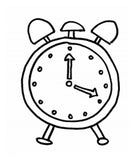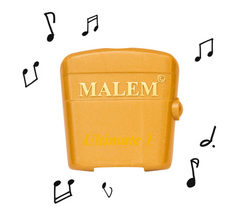Auditory Accommodation
You may have seen the term “auditory accommodation” used in the descriptions of some bedwetting alarms. What is it and what can be done about it?
What is it?
Ever slept through your morning alarm clock? Auditory accommodation may be why…
“Auditory accommodation” simply refers to when someone gets accustomed the same sound and so it starts to have a lower impact. In terms of bedwetting alarms, this means that if the same alarm sound always plays when your child wets the bed they may start to get used to it and ignore it. The significance of the bedwetting alarm sound is reduced, which in turn can reduce the effectiveness of the bedwetting alarm treatment.

What can you do about it?
If you think that auditory accommodation may be an issue, try using an alarm that plays different sounds. The surprise of hearing different sounds when wetting occurs should be enough to wake your child up each time as soon as they wet the bed.
What alarms to use?
To avoid auditory accommodation, try using a different sound on the alarm. This could be a manual process, changing the alarm sound on a selectable alarm every week or so. Or, choose an 8-tone alarm, where the alarm sound automatically cycles through 8 different sounds each time it is activated, preventing your child from getting used to the same tone (our yellow and camouflage audio alarms are 8-tone, as is the Malem gold Ultimate alarm). The Ultimate Selectable, Recordable, Wireless and Bed-Side alarms allow you to manually select the alarm sounds or set it to random 8-tone, giving you the best of both worlds.
